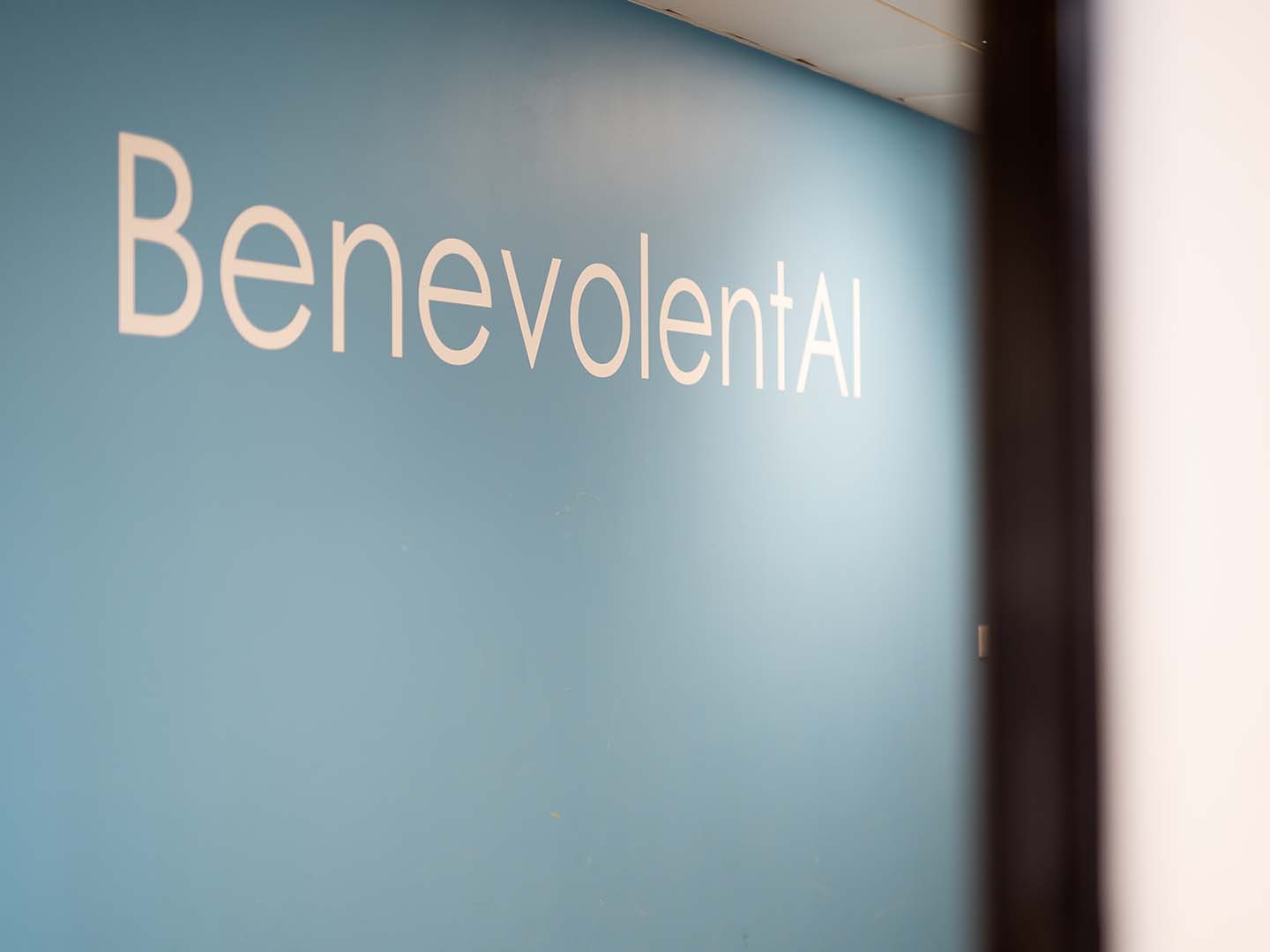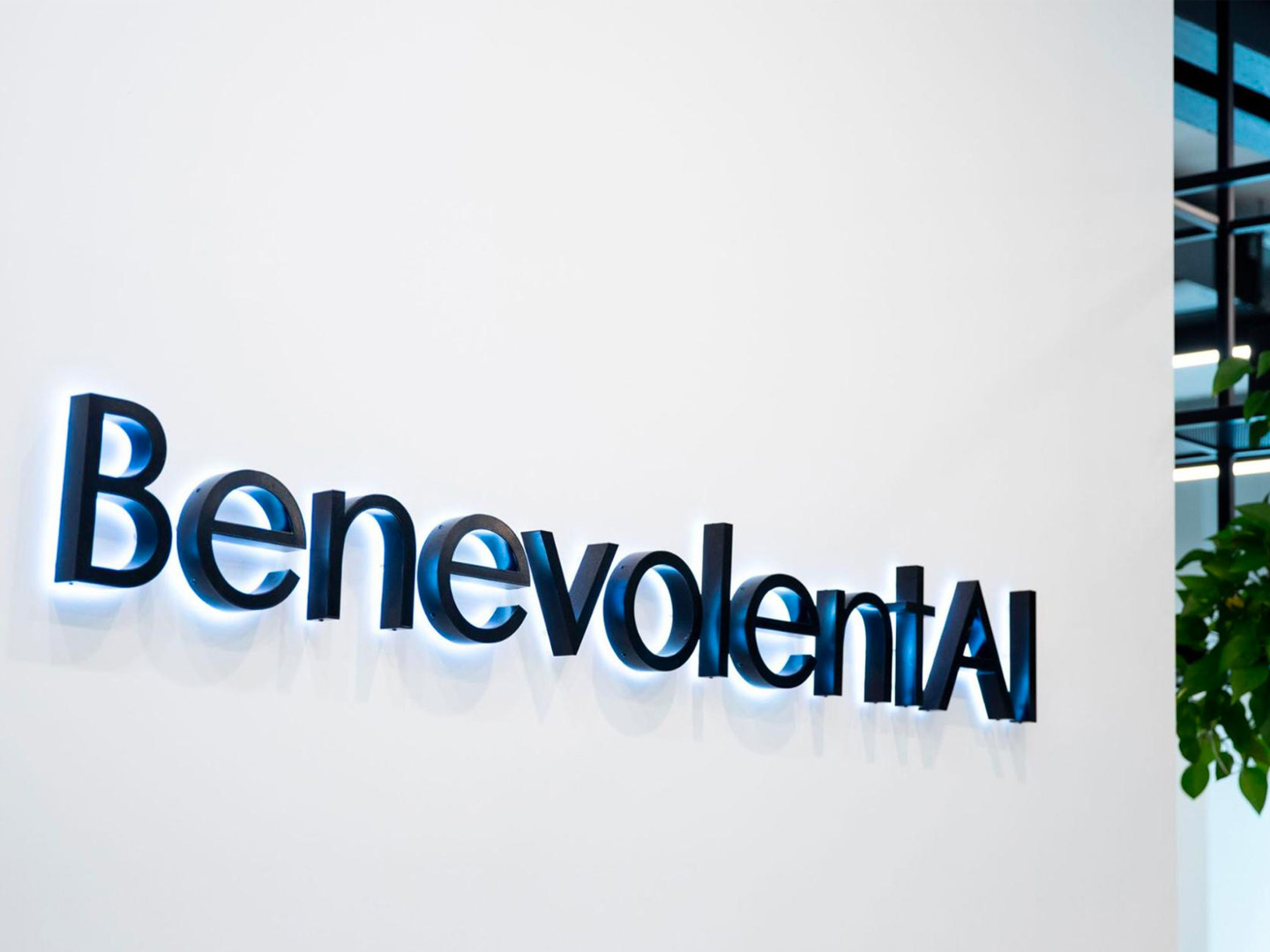BenevolentAI (“BenevolentAI” or the “Company”) (Euronext Amsterdam: BAI), a leader in applying advanced AI to accelerate biopharma drug discovery, today announces positive safety data from its Phase Ia, first-in-human, clinical study of BEN-8744 in healthy volunteers.
- BEN-8744 is an orally administered, peripherally-restricted PDE10 inhibitor being developed as a potential first-in-class treatment for patients with moderate to severe ulcerative colitis (UC)
- The Phase Ia study met its primary objective. BEN-8744 was safe and well tolerated, with no Serious Adverse Events (SAEs) reported in any dose cohorts. Importantly, given the liabilities associated with PDE10 inhibitors previously in clinical development for other central nervous system (CNS) indications, there was no evidence of CNS-associated adverse events
- The pharmacokinetic profile of BEN-8744 generated in the study suggested that twice daily dosing should achieve the desired PDE10 target coverage to elicit a potential therapeutic effect in subsequent clinical studies in UC patients
- PDE10 was identified using the Benevolent Platform™ as a novel drug target for the treatment of UC with potential for meaningful differentiation versus existing standard-of-care treatments
BenevolentAI, using the Benevolent Platform™, identified PDE10 inhibition as a potential novel approach to treat UC, but was aware of CNS side effects with PDE10 inhibitors in development for CNS indications that limited their further clinical development. As a result, BenevolentAI’s scientists designed BEN-8744 to be not only a potent PDE10 inhibitor, but also a peripherally-restricted molecule, i.e. with very limited CNS penetration, to minimise the chances of these side effects occurring. The Phase Ia study results support this profile, showing no evidence of CNS-associated adverse events at any dose level. It is anticipated that the full results from this study will be presented in a peer-reviewed forum at a later date. Phase II-enabling extended regulatory toxicology studies and biomarker qualification studies are underway to permit the extended dosing envisaged for further drug development.
Dr. Anne Phelan, Chief Scientific Officer of BenevolentAI, said: “The safety and tolerability profile of BEN-8744 emerging from this Phase Ia study in healthy volunteers is very encouraging with respect to this novel drug candidate’s future development as a differentiated treatment for UC. This is a disease where there remains a notable unmet patient need, as rates of sustained remission remain disappointingly low and there is significant potential for a drug with meaningful differentiation from existing immunosuppressive standard-of-care treatments.”
Dr. Joerg Moeller, Chief Executive Officer of BenevolentAI, said: “We are pleased to report the topline data from this first in human study of BEN-8744 in healthy volunteers, which are in line with our ambition to have a molecule with the potential to be devoid of the adverse safety profile that has plagued previous members of this class of agents. As we work up the full results from the Phase Ia trial and finish the required Phase II-enabling preclinical studies for more extended dosing, we will continue to evaluate our options for the further development of this drug candidate.”
The Benevolent Platform™ and PDE10 inhibition as a potential novel therapeutic approach to the treatment of UC
The Benevolent Platform™ has been developed to rapidly identify novel potential drug targets for further evaluation. In the case of this programme, there was no previously published data in all available biomedical literature establishing PDE10 in the disease pathology of UC. Having validated the target hypothesis ex-vivo, BenevolentAI’s scientists were then able to quickly design a lead molecule that, after rapid lead optimisation, resulted in BEN-8744. BEN-8744 was then nominated as a development candidate in September 2021, only two years from programme initiation. As such, BEN-8744, like all programmes within the BenevolentAI pipeline, is a wholly-owned asset of the Company.
PDE10 is a dual phosphodiesterase that can function to reduce intracellular levels of both the signalling molecules cAMP and cGMP. Restoration of cAMP and cGMP levels by PDE10 inhibition is anticipated to have a direct anti-inflammatory and potential disease-modifying benefit through improvement of barrier integrity. The therapeutic potential of PDE10 inhibition has been well studied in the central
nervous system as its highest level of expression is in the brain. However, clinical trials for PDE10 inhibitors have revealed substantial side effects, thought to be attributable to PDE10 inhibition in the brain. BEN-8744 has been intentionally designed to be peripherally restricted to avoid the CNS side effects and more selectively target PDE10 expression in the periphery. Initial signs of the potential pharmacological efficacy of BEN-8744 were observed in ex-vivo patient-derived colonic biopsies, where treatment with BEN-8744 was shown to reduce the release of pro-inflammatory cytokines such as IL6, IL8 and TNFa, in a dose dependent manner. The magnitude of the response was comparable to standard of care agents such as JAK inhibitors and steroids.
With a differentiated mechanism of action and potentially disease modifying efficacy, BEN-8744 could also be investigated further in wider inflammatory bowel disease indications, with the Company already having preclinical data indicative of a robust anti-inflammatory response in ex-vivo Crohn’s patient biopsies, allowing for the possibility of indication expansion.
About Phase Ia clinical study of BEN-8744 in healthy volunteers
The Phase Ia study of BEN-8744 was a randomised, double-blind, placebo-controlled single centre, single and multiple ascending dose (SAD/MAD) study in healthy volunteers (clinical trial number NCT06118385). The primary objective of the study was to investigate the safety and tolerability of multiple doses and the effect of food on pharmacokinetic profile of BEN-8744 in healthy volunteers, aged 18-65 years. In the MAD study, subjects were dosed twice daily for 14 consecutive days. BEN-8744 or placebo was administered to 8 healthy subjects (BEN-8744 n=6; placebo n=2) in both the single and multiple dose cohorts. In total 6 SAD and 2 MAD cohorts were completed. At total of 54 subjects were exposed to BEN-8744; 36 in the SAD, 12 in the MAD and 6 in the food effect study.
Public disclosure of inside information in accordance with article 17(1) of the Regulation (EU) No 596/2014 on market abuse (Market Abuse Regulation)
Enquiries:
Investors:
Fleur Wood – VP Investor Relations
fleur.wood@benevolent.ai
investors@benevolent.ai
T: +44(0) 203 781 9360
Media:
Rachel Gurney
press@benevolent.ai
T: +44(0) 203 781 9360
FTI Consulting:
Ben Atwell/Simon Conway/Victoria Foster Mitchell
T: +44 203 727 1000
BenevolentAI@fticonsulting.com
About inflammatory bowel diseases – ulcerative colitis and Crohn’s disease
Ulcerative colitis is a chronic, lifelong disease that causes inflammation and ulceration of the inner lining of the colon and rectum. UC affects over 1.9 million patients in eight major markets1 of which 31% have moderate-to-severe disease. 20-40% of those patients with moderate-to-severe UC do not respond to anti-TNF, the main treatment approach2, in addition currently available treatments may come with severe side effects from steroids to anti-TNF and JAK inhibitors3. The UC market forecast is $10.7 billion by 20284.
Crohn’s disease (CD) affects over 1.6 million patients in eight major markets and 41% of US patients have moderate disease5. The CD market forecast is $18.4 billion by 20286.
Sources: 1GlobalData: Ulcerative Colitis: Epidemiology Forecast to 2031; 2Roda et al. Clin Transl Gastroenterol 2016; 3Kobayashi et al Nat Rev Dis Primers 2020 and US FDA Drug Safety Communication 2021; 4Evaluate Pharma: Gastro-intestinal, Inflammatory bowel disease (IBD), Ulcerative Colitis, Worldwide Overview (retrieved 6th October 2023); 5GlobalData:Crohn’s Disease: Epidemiology Forecast to 2032; 6Evaluate Pharma: Gastro-intestinal, Inflammatory bowel disease (IBD), Crohn’s Disease, Worldwide Overview (retrieved 6th October 2023)
About BenevolentAI
At BenevolentAI (AMS: BAI), we serve patients by leveraging our proprietary and validated Benevolent Platform™ that integrates AI and science to uncover new biology, predict novel targets and develop first-in-class or best-in-class drugs for complex diseases. By applying proprietary advanced AI tools, in combination with in-house scientific expertise and wet-lab facilities, BenevolentAI is well-positioned to identify and accelerate novel drug discovery. The Company’s business model presents multiple routes for value creation including discovery collaborations with pharma companies like AstraZeneca and Merck, advancing in-house pipelines to inflection points, and commercialising a suite of knowledge exploration tools. Headquartered in London, with wet labs in Cambridge (UK) and an office in New York, BenevolentAI is at the forefront of reshaping the future of drug discovery and delivering innovative medicines.
Forward-looking Statements
This release may contain forward-looking statements. Forward-looking statements are statements that are not historical facts and may be identified by words such as "plans", "targets", "aims", "believes", "expects", "anticipates", "intends", "estimates", "will", "may", "should" and similar expressions. Forward-looking statements include statements regarding objectives, goals, strategies, outlook and growth prospects; future plans, events or performance and potential for future growth; economic outlook and industry trends; developments in BenevolentAI’s markets; the impact of regulatory initiatives; and/or the strength of BenevolentAI’s competitors. These forward-looking statements reflect, at the time made, BenevolentAI’s beliefs, intentions and current targets/aims. Forward-looking statements involve risks and uncertainties because they relate to events and depend on circumstances that may or may not occur in the future. The forward-looking statements in this release are based upon various assumptions based on, without limitation, management's examination of historical operating trends, data contained in BenevolentAI’s records, and third-party data. Although BenevolentAI believes these assumptions were reasonable when made, these assumptions are inherently subject to significant known and unknown risks, uncertainties, contingencies and other important factors which are difficult or impossible to predict and are beyond BenevolentAI’s control. Forward-looking statements are not guarantees of future performance, and such risks, uncertainties, contingencies and other important factors could cause the actual outcomes and the results of operations, financial condition and liquidity of BenevolentAI or the industry to differ materially from those results expressed or implied by such forward-looking statements. The forward-looking statements speak only as of the date of this release. No representation or warranty is made that any of these forward- looking statements or forecasts will come to pass or that any forecast result will be achieved.
Back to press releases and in the media



